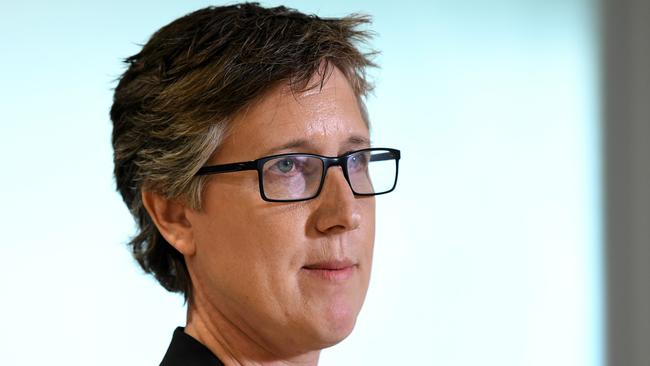Coronavirus: Industry, unions say new employees should receive JobKeeper 2.0
A leading business group and unions have urged the federal government to let new workers receive JobKeeper 2.0 payments.

A leading business group and unions have urged the federal government to let new workers receive JobKeeper 2.0 payments, as Scott Morrison stands by a stricter eligibility test that industry is warning will trigger mass job losses after September.
With Labor signalling it may not wave through JobKeeper 2.0 legislation if there are “improvements” to be made, concerns are growing within industry that too many employers and employees will be cut off from the wage subsidy and forced on to JobSeeker after the first phase ends on September 27.
The Australian revealed on Friday that industry groups feared the tougher turnover test to qualify for the second phase — in which a business must show its turnover declined by at least 30 per cent in the June and September quarters — would be the “death knell” for some sectors.
There are also concerns the government has kept March 1 as the date an employee must be connected with an employer to receive JobKeeper 2.0 payments.
That will rule out any full-time, part-time or fixed-term employee who has been hired by an employer since March 1 from receiving the wage subsidy, as well as casuals who may have clocked up 12 months with a business after that date.
Australian Chamber of Commerce and Industry chief executive James Pearson said the government should consider shifting the eligibility date for the second phase to July 22, when the Prime Minister announced the $16.6bn package.
“In relation to the issue of only supporting relationships in place as at 1 March, this is not likely to provide the support that businesses in hospitality and retail need to survive,” Mr Pearson told The Weekend Australian.
“We urge the government to consider shifting the date to 22 July for JobKeeper 2.0 or, better yet, providing the support for the number of employees who were eligible on March 1, even though some of the workers may have changed. The alternative will be that even more jobs will be lost and businesses close.”
Australian Industry Group chief executive Innes Willox said he supported the government’s March 1 eligibility date because employers who put people on after that had done so on the basis of them adding value to the business in the absence of a subsidy.
“The case for subsidising these (new) employees is therefore not strong,” Mr Willox said.
ACTU secretary Sally McManus said if eligibility for JobKeeper was being reassessed, that should mean people who had been taken on by the business since March can be eligible.
“Otherwise those businesses that have been trying to do the right thing and employ people as the economy started to reopen, but that have been hit by the emerging second wave, particularly in Victoria, are being punished, as are any workers who changed job,” Ms McManus said.
Asked if he was open to relaxing the new eligibility test, Mr Morrison said the government wanted businesses to “graduate out of JobKeeper” as soon as possible.
“That’s the point, not for them to be able to remain permanently dependent on JobKeeper,” he said. “We need to get, as soon as we can and as best as we’re able to, in a situation where we have fewer businesses dependent upon JobKeeper and that’s the plan that we set out.”




To join the conversation, please log in. Don't have an account? Register
Join the conversation, you are commenting as Logout